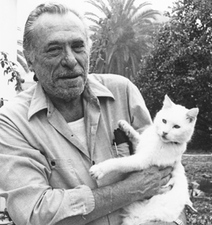Ham on Rye is a harsh, extremely blunt commentary on
a lot of issues in 1930s America. I don’t think 20th century
literature has seen such an angry, confused, bitter character as Henry, who is
the alter ego of the author.
And indeed, who would not be these things if your
father beat you regularly for missing a few blades of grass when mowing the
lawn, or having such extreme acne that you were quarantined for months and no
one wanted so much as to lay eyes on you.
I kept expecting a breakthrough of some sort
throughout the story, that the character would find in some sense, a purpose or
at least if he was going to be eternally against everything, he would at least
be content in the role he chose, but the story feels so unresolved.
I suppose this style of writing is very much in
keeping with the Russian authors that Henry immersed himself in such as Maxim
Gorky, Ivan Goncharov, and others, and having read some of this literature, I
can understand how Henry connected their message to his life. The lack of hope
for the common man and lack of opportunity because of limited income certainly
is a theme in our class readings and in this book.
Even though this book was difficult to read and
while Henry certainly does not embody the traits that a protagonist usually
demonstrates (honor, decency, etc.) I find that I still like aspects of his
character, such as his honesty and absolute fearlessness about what others
think about him. I’ve never encountered a character so utterly
indifferent to punishment once he sets his mind on something.
And while this book did not end with a resolving
conclusion or give closure to the events of the story, at least the person who was at the center of the
story all along (the author) did go on to become a famous writer and hopefully
find some justice after all.





